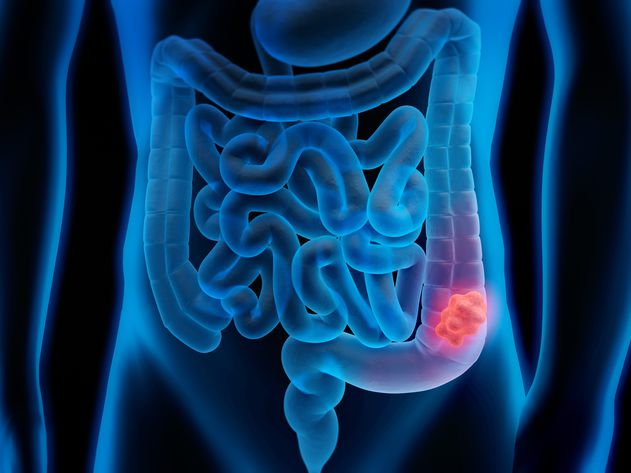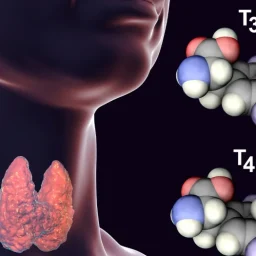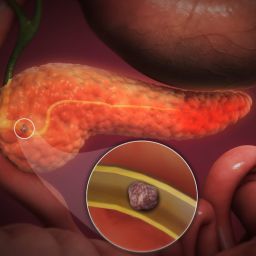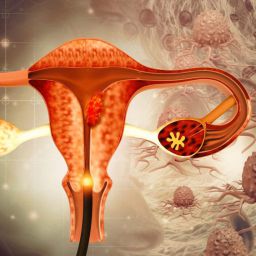
The Connection Between Smoking and Colon Cancer
Colorectal cancer is one of the leading causes of cancer-related deaths globally. It is estimated that smoking increases the risk of developing colorectal cancer by as much as 20-30%. While the exact mechanism remains a topic of ongoing research, several factors have been identified that link smoking to colon cancer development.
Carcinogens in Tobacco
Tobacco smoke contains thousands of harmful chemicals, many of which are known carcinogens. These substances, such as benzene, formaldehyde, and polycyclic aromatic hydrocarbons, can damage the DNA within cells and promote mutations that lead to cancer. When tobacco smoke is inhaled or absorbed into the bloodstream, these carcinogens can travel to various organs, including the colon. There, they can damage the cells lining the colon, triggering abnormal growths and increasing the risk of colon cancer.
Impaired Immune Response
Smoking has been shown to suppress the immune system, impairing the body’s ability to recognize and destroy abnormal or cancerous cells. A weakened immune system may allow precancerous cells in the colon to proliferate and eventually become cancerous. Additionally, smoking may contribute to an environment in the colon that favors tumor growth, further increasing the risk of cancer development.
Chronic Inflammation and Oxidative Stress
Smoking is known to promote chronic inflammation and increase oxidative stress in the body. Chronic inflammation is a key driver in the development of many types of cancer, including colorectal cancer. Inflammation can cause damage to the tissues lining the colon, creating an environment conducive to cancer development. Additionally, smoking-induced oxidative stress can damage cellular structures and DNA, further contributing to the initiation and progression of cancer.
Smoking and Inflammatory Bowel Disease (IBD)
Inflammatory bowel disease (IBD), which includes Crohn’s disease and ulcerative colitis, refers to a group of chronic conditions that cause inflammation of the digestive tract. Both conditions can lead to severe gastrointestinal symptoms, such as abdominal pain, diarrhea, weight loss, and fatigue. While the exact cause of IBD remains unknown, smoking has been identified as a major risk factor for both Crohn’s disease and ulcerative colitis.
Increased Risk of Developing Crohn’s Disease

Research has consistently shown that smoking significantly increases the risk of developing Crohn’s disease, a type of IBD that primarily affects the small intestine and colon. In fact, smokers are up to three times more likely to develop Crohn’s disease compared to non-smokers. Smoking has been found to alter the immune response in the gut, leading to an exaggerated inflammatory reaction that triggers the onset of Crohn’s disease.
Moreover, smoking has been linked to more severe forms of Crohn’s disease, characterized by greater tissue damage, more frequent flare-ups, and a higher likelihood of needing surgery. Smoking also appears to reduce the effectiveness of treatments for Crohn’s disease, making it more difficult to manage the condition.
Impact on Ulcerative Colitis
While smoking is a risk factor for Crohn’s disease, the relationship between smoking and ulcerative colitis is somewhat paradoxical. Some studies suggest that smoking may actually have a protective effect against ulcerative colitis, as smokers tend to have a lower risk of developing this condition. However, for individuals who already have ulcerative colitis, smoking worsens the severity of symptoms, increases the frequency of flare-ups, and raises the risk of complications, such as colon cancer.
The negative impact of smoking on ulcerative colitis may be linked to its ability to alter gut microbiota, impair mucosal defenses, and increase intestinal permeability. In people with ulcerative colitis, smoking can lead to increased inflammation and mucosal injury in the colon, exacerbating disease progression.
The Role of Smoking in Irritable Bowel Syndrome (IBS)
Irritable bowel syndrome (IBS) is a functional gastrointestinal disorder characterized by abdominal discomfort, bloating, and changes in bowel movements, such as diarrhea or constipation. While IBS is not as severe as conditions like IBD, it can still significantly affect quality of life. Although smoking is not considered a direct cause of IBS, studies suggest that smoking may exacerbate the symptoms of IBS in susceptible individuals.
Effects on Gut Motility
Smoking can disrupt normal gut motility, leading to changes in bowel movements and contributing to IBS symptoms like diarrhea or constipation. Nicotine, the addictive substance in cigarettes, has been shown to influence the contractions of the gastrointestinal muscles, potentially worsening IBS symptoms.
Increased Sensitivity to Pain
Smoking may also increase the sensitivity of the intestines to pain and discomfort. People with IBS often experience heightened pain sensitivity, and smoking may exacerbate this sensitivity, leading to more severe abdominal pain and cramping. Additionally, smoking may contribute to increased gut inflammation, further aggravating IBS symptoms.
Impact of Smoking on Gut Microbiota

Emerging research has shown that smoking can disrupt the balance of gut microbiota—the trillions of microorganisms that live in the digestive tract and play a crucial role in maintaining health. A healthy and diverse microbiome is essential for optimal digestion, immune function, and disease prevention. However, smoking can alter the composition of the gut microbiota, potentially contributing to gastrointestinal disorders.
Disruption of Microbial Balance
Studies have shown that smokers tend to have a less diverse gut microbiome compared to non-smokers. Smoking can promote the growth of harmful bacteria, while suppressing the growth of beneficial bacteria. This imbalance in the gut microbiome has been linked to a range of gastrointestinal conditions, including colon cancer, IBD, and IBS. By altering the microbiome, smoking may create an environment in the gut that is more prone to inflammation, infection, and disease.
Increased Risk of Dysbiosis
Dysbiosis, or an imbalance of gut bacteria, has been associated with a variety of gastrointestinal diseases. Smoking-induced dysbiosis can increase intestinal permeability (also known as “leaky gut”), allowing harmful substances to pass through the intestinal lining and into the bloodstream. This can trigger systemic inflammation and contribute to the development of conditions such as IBD and colorectal cancer.
Quitting Smoking for Colon Health
Given the numerous harmful effects of smoking on colon health, quitting smoking is one of the most important steps individuals can take to protect their digestive system and reduce the risk of colon cancer, IBD, and other gastrointestinal diseases. The benefits of quitting smoking for colon health are substantial and can begin to take effect almost immediately.
Reduced Risk of Colon Cancer
Research has shown that individuals who quit smoking significantly reduce their risk of developing colon cancer. While the risk remains elevated for some time after quitting, it gradually decreases over the years and can eventually return to the level of someone who has never smoked. The earlier a person quits smoking, the greater the reduction in their risk of colon cancer.
Improved Gut Health and Microbiome
Quitting smoking can help restore balance to the gut microbiome, improving the diversity and composition of gut bacteria. A healthier microbiome supports better digestion, reduces inflammation, and may lower the risk of conditions like IBS and IBD. Additionally, quitting smoking can help reverse some of the damage to the gastrointestinal tract caused by chronic inflammation and oxidative stress.
Enhanced Immune Function
Quitting smoking also improves immune function, allowing the body to better recognize and eliminate abnormal cells that could potentially become cancerous. A stronger immune system helps protect the colon from cancer and other diseases, as well as promoting better overall health.
Better Management of Inflammatory Bowel Disease
For individuals with IBD, quitting smoking can help reduce disease activity and improve symptoms. Although smoking cessation may initially cause a temporary worsening of symptoms, long-term benefits include a reduced risk of flare-ups, improved response to medications, and a lower likelihood of requiring surgery. For those with ulcerative colitis, quitting smoking may also improve long-term outcomes, even if smoking initially appeared to have a protective effect.
Smoking is a major risk factor for a wide range of gastrointestinal diseases, including colon cancer, inflammatory bowel disease, and irritable bowel syndrome. By damaging the DNA in colon cells, promoting chronic inflammation, disrupting the gut microbiome, and impairing immune function, smoking contributes to the development and progression of these conditions. The good news is that quitting smoking can significantly reduce the risk of colon cancer and other gastrointestinal disorders, improve gut health, and promote better overall well-being.
For anyone concerned about their colon health, quitting smoking is one of the most effective actions they can take. While the process of quitting may be challenging, the long-term benefits for colon health and overall quality of life are well worth the effort.















